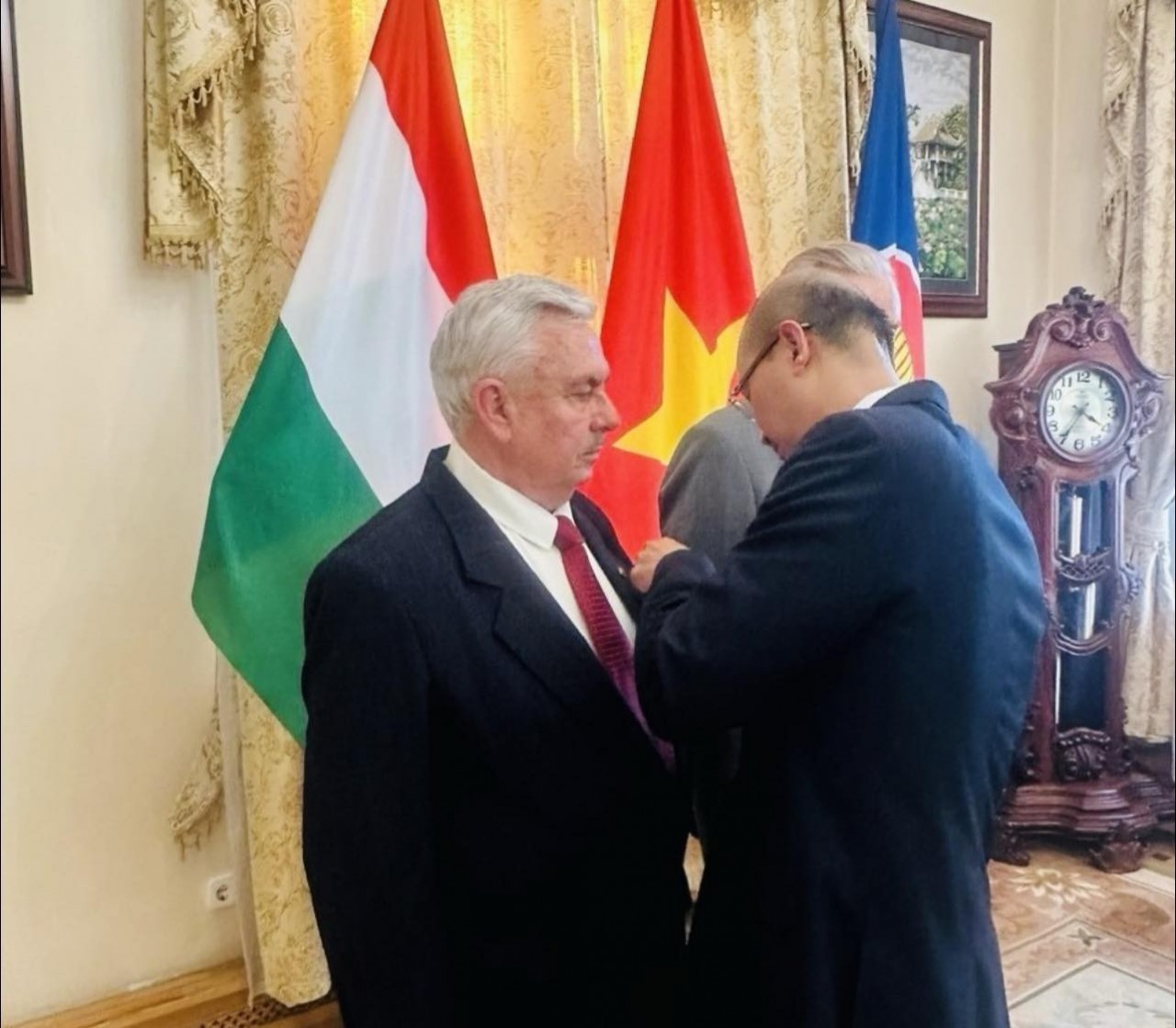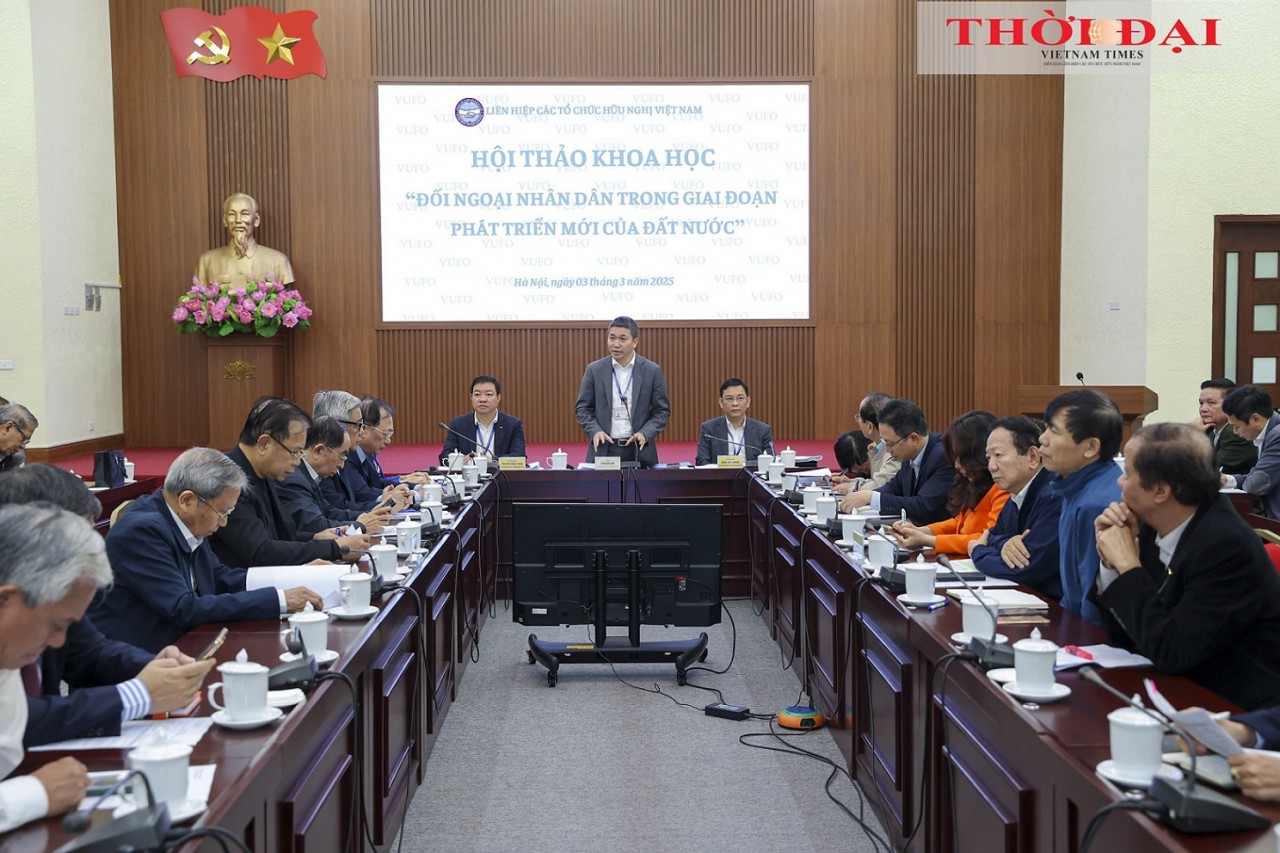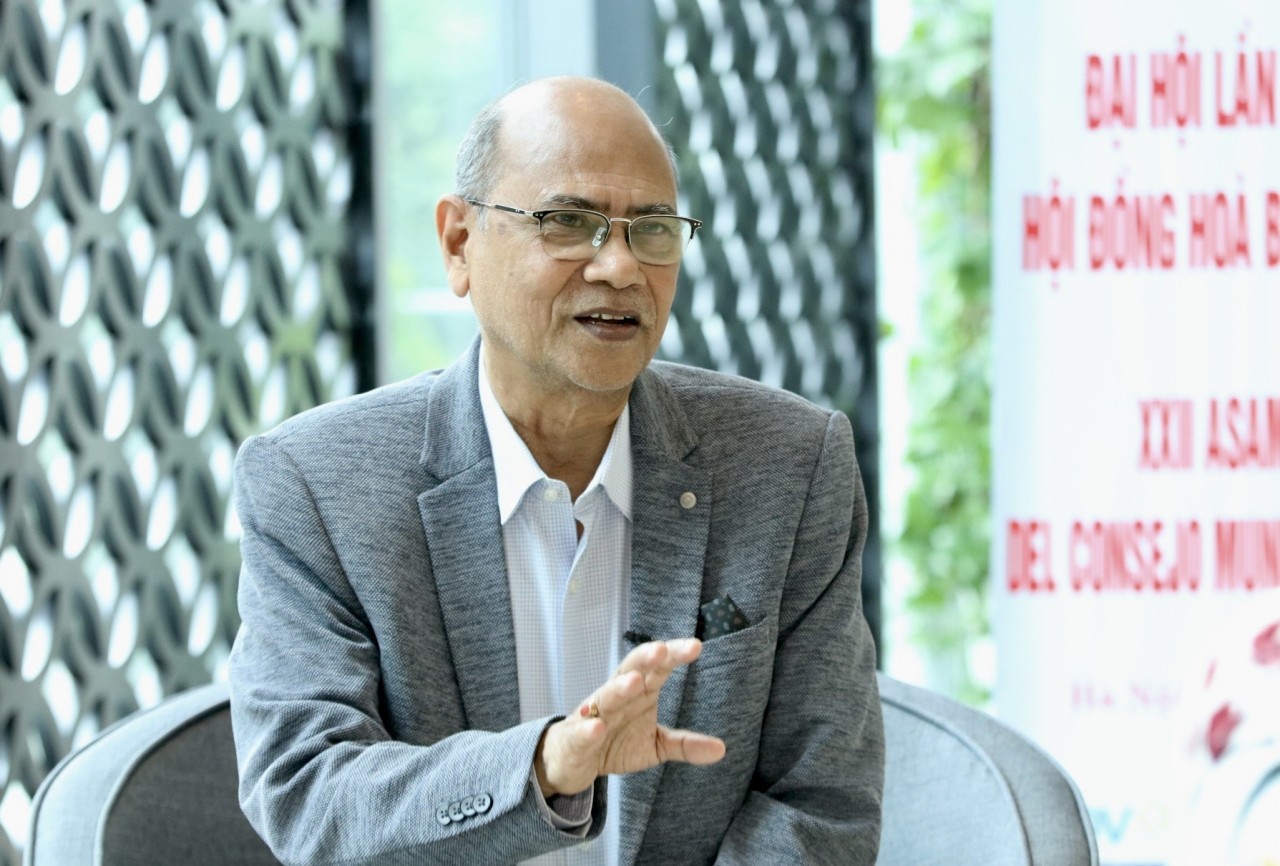Striving for Peace: A Prominent Feature for Vietnamese People-to-people Diplomacy
This interview with Tran Dac Loi, Vice Chairman of the Vietnam Peace Committee is conducted on the occasion that the 22nd Congress of the World Peace Council is about to take place in Vietnam this November.
What are the ideas and philosophies formed during the Vietnamese ancient times and the era of Ho Chi Minh, adopted in diplomacy in general and people-to-people diplomacy in particular?
Vietnam has a long history of fighting against foreign invaders for thousands of years. The nation has experienced many sacrifices and losses. Above all, the spirit of peace-loving and harmony is always shown clearly in Vietnamese culture. That is also a prominent feature in Vietnamese diplomacy.
This spirit can be seen in historical stories such as the legend of the Sword Lake with the detail of King Le Loi returning the precious sword to the turtle after winning over the foreign invaders. Or in the policy of the previous dynasties, after defeating invaders, Vietnam always sought peace or even yielded to big countries to preserve the peaceful situation and focus on developing the country.
This tradition continued in the Ho Chi Minh era. After the August Revolution, President Ho Chi Minh and the Vietnam Communist Party focused on restoring peace through negotiations, agreements, and even compromises with France to maintain peace.
In the "Letter to the French in Indochina" in October 1945, President Ho Chi Minh expressed his respect to the French people and pointed out the similarities between the two peoples of Vietnam and France, namely the desire for independence, and freedom. He urged: “To all Frenchmen in Indochina, don’t you think that much blood has flowed, that peace - a true peace built on justice and democratic ideals - must replace war, that freedom, equality, and fraternity must be practiced in all countries without discrimination of race or color”.
This is also the consistent spirit repeated by Ho Chi Minh many times in meetings, dialogues, and email exchanges with politicians and colonial authorities.
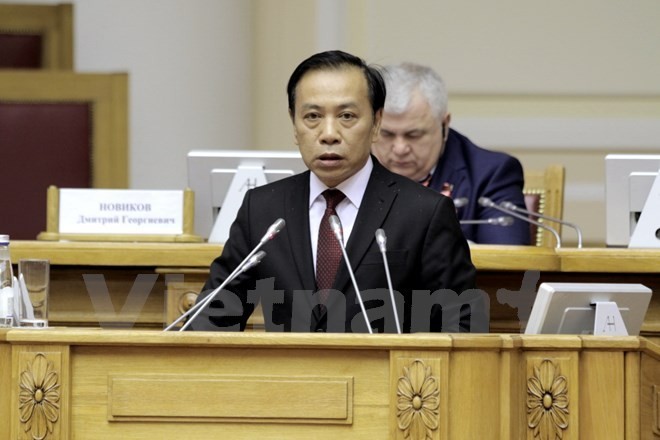 |
| Tran Dac Loi, Vice Chairman of the Vietnam Peace Committee. (Photo: Thoi Dai) |
Even when the French colonialists provoked aggression in the South and re-invaded Vietnam, he still advocated for a negotiated solution, willing to accept compromises and concessions, on the basis of ensuring the independence of Vietnam, avoiding a cruel war for the Vietnamese people with the French colonial government.
Ho Chi Minh's efforts to maintain dialogue, and advocate peaceful settlement of contradictions and differences in Vietnam - France relations were most focused when signing the Preliminary Agreement with the French Representative Sainteny on March 06, 1946, and the Provisional Agreement with the French Government on September 14, 1946.
When the danger of the war of aggression by the French colonialists was posed, in order to maintain the peace, President Ho Chi Minh still sent a message of peace to the French. He declared: "My compatriots and I desire peace. We don't want war. We avoid this war by all means. But if other people force us, we will have to fight for ourselves. We are not strange about whatever awaits us. Anyway, I hope we won't come to that resolution…”
Being aware of the role, position, and strength of the people in the revolutionary cause, President Ho Chi Minh once said: "The greatness of the Vietnamese Revolution lies in the unity of the Vietnamese people and the support of the people around the world". It is affirmed that the support of the world's people is an important factor in the Vietnamese revolution. Therefore, President Ho Chi Minh and Vietnam Communist Party pay great attention to promoting people-to-people diplomacy.
So how has this approach been shown throughout the period of the resistance war?
After the success of the August Revolution in 1945, President Ho Chi Minh directed the establishment of the Vietnam-American Friendship Association and the Vietnamese-Chinese Friendship Association. These are the first people-to-people diplomacy organizations, through which to establish relations between the Vietnamese people and the American and Chinese peoples.
In the midst of the peak days of the resistance war against the French, President Ho Chi Minh also directed the establishment of Vietnam's World Peace Protection Committee right at the Viet Bac war zone in November 1950. Uncle Ho met and discussed with the delegates before they participated in people-to-people diplomacy activities at international conferences. During the revolutionary activities, people's peace and friendship organizations were also formed under the direction of President Ho Chi Minh and the Party.
Also in the past years, Party Congresses have issued many resolutions to assess the role and necessity of strengthening people-to-people diplomacy in order to serve the Vietnamese revolutionary cause. This has been done on the basis of the steadfast spirit of the foreign policy of independence, self-reliance, peace, cooperation, and development. Vietnam always advocates being a friend and reliable partner of all countries in the international community.
Vietnam also upholds and promotes the peace-loving tradition of the nation and President Ho Chi Minh in the new era, through the establishment of a military policy of 3 No’s. Accordingly, Viet Nam consistently advocates neither joining any military alliances, siding with one country against another, giving any other countries permission to set up military bases or using its territory to carry out military activities against other countries. Vietnam also insists on settling disputes by peaceful means, without using or threatening to use force in international relations.
Regarding people-to-people diplomacy, the 9th Party Congress in 2001 stated: "Further expand people-to-people diplomacy, strengthen bilateral and multilateral relations with people's organizations of other countries, upgrade cooperation with national and international NGOs, contributing to enhancing mutual understanding, friendship and cooperation between our people and people of countries in the region and in the world.”
Subsequent Party Congresses also had guidelines on people-to-people diplomacy. Recently, the 13th Party Congress in 2021 clearly defined that people-to-people diplomacy is one of the three pillars of Vietnam's diplomacy. That highlights the importance of people-to-people diplomacy. In the context of integration, the Party has strengthened the work.
On September 20, 1994, the Secretariat of the Party Central Committee issued Directive No. 44 on expanding and renewing people-to-people diplomacy, Directive No. 04 issued on July 6, 2011 on continuing to renew and improve the effectiveness of people-to-people diplomacy in the new situation. Most recently, the Secretariat issued Directive No. 12 dated January 5, 2022, on continuing to renovate and improve the effectiveness of people-to-people diplomacy. These have clearly highlighted the Party and State's interest in people-to-people diplomacy.
Imbued with ideas about the spirit of peace and harmony, how has people-to-people diplomacy been implemented in recent years?
In recent years, under the direction of the Party, people-to-people diplomacy has made strong progress. This is reflected first of all in the development of forces engaged in the affairs. The Fatherland Front and mass organizations actively participate in people-to-people diplomacy.
In 1992, the Secretariat and the Government decided to separate the Viet Nam Union of Friendship Organizations from the Central Committee for External Relations to become a separate organization specialized in people-to-people diplomacy. On that basis, Vietnam’s relations with other partners have been continuously expanded, multi-lateralized, and diversified in recent years.
Currently, Vietnamese people's organizations have thousands of partners in many countries. Besides the traditional friends, we have established relations with many new organizations in new areas and content of cooperation. Vietnam also strengthens relations with people's organizations of neighboring countries in the region and expands relations with people's organizations of other countries.
Vietnam has also facilitated more than 500 foreign NGOs operating in the country. In addition, Vietnamese people's organizations also participate and play an active role in many regional and international organizations. On the basis of such force development and foreign relations expansion, people-to-people organizations have conducted many practical and effective external activities.
One of the prioritized areas is the consolidation of people-to-people friendships with neighboring countries. Amongst many activities, some can be listed as the Vietnam - China People's Forum, Vietnam - China Youth Festival, Vietnam - Laos – Cambodia Youth Festival, meetings with people in border provinces of Vietnam - Laos and Vietnam - Cambodia, Vietnam - China border people exchange, etc.
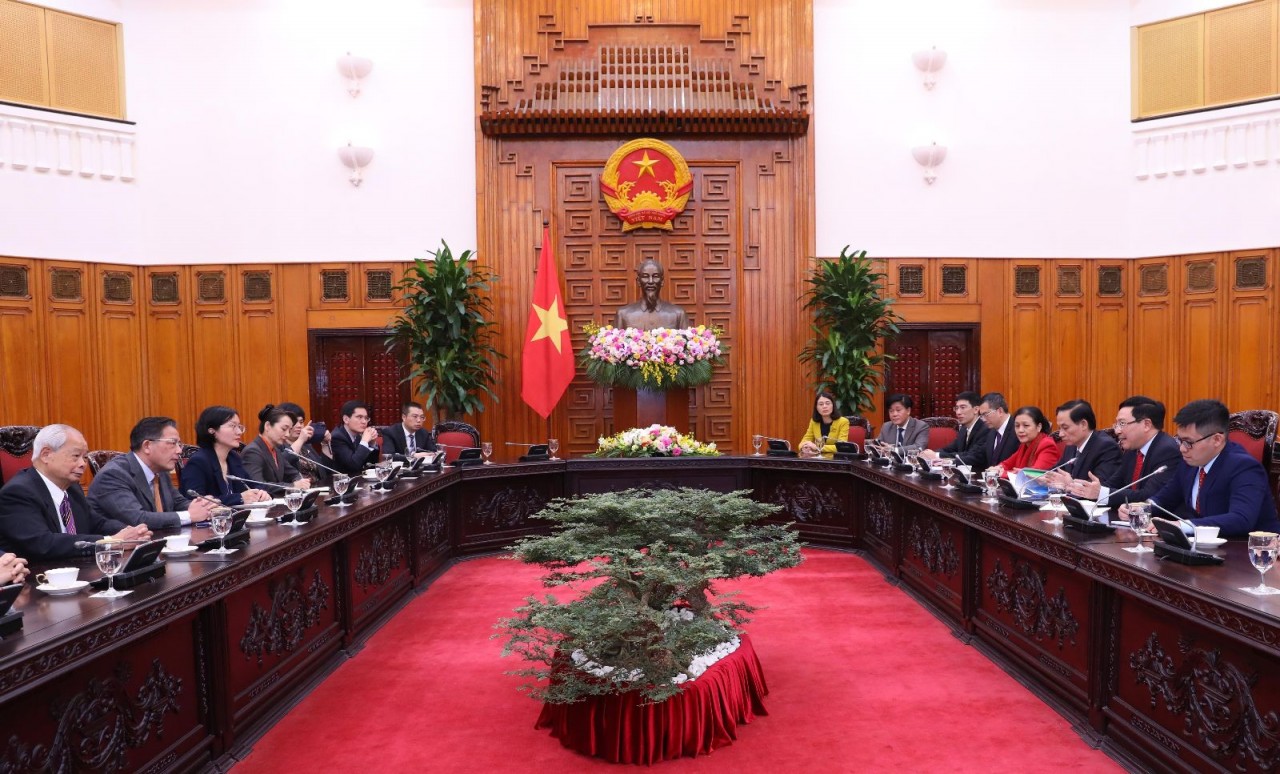 |
| Deputy Prime Minister and Foreign Minister Pham Binh Minh on December 28 hosted a reception for delegates to the 11th Vietnam-China People’s Forum in 2019. (Photo: VNA) |
In addition, people's organizations also participate in many regional and international forums, thereby promoting Vietnam's image and protecting national interests. They include the Forum of ASEAN people, the Eurasian People's Forum, the World Social Forum, the United Nations Human Rights Forum, etc. These activities have effectively contributed to the consolidation of friendly relations and mutual understanding and promoted cooperation between the people's organizations of Vietnam and other countries.
| Four main tasks of people-to-people diplomacy in the coming time According to Tran Dac Loi, in the coming time, people-to-people diplomacy should focus on these 4 main tasks. First of all, continue to develop the forces that are conducting people-to-people diplomacy, and further improve the capacity of the staff engaged in the work to be able to meet the requirements of the increasingly extensive international integration, in a world of increasingly complex developments. Secondly, continue to expand, multi-lateralize, and diversify the relations of people's organizations with external partners, paying special attention to further deepening the partnership with others. Thirdly, focus on renewing and further improving the effectiveness of people-to-people diplomacy activities, taking full advantage of the strengths of people-to-people diplomacy in protecting and promoting national and people interests. Finally, strengthen close coordination between people-to-people diplomacy, Party and State diplomacy, and unify coordination among Vietnamese people's organizations in people-to-people activities. |
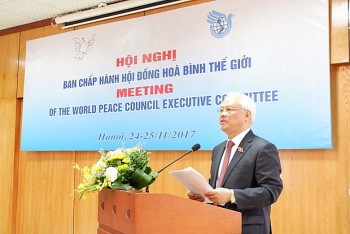 | World Peace Council - Over 70 Years Contributes to Peace and Justice In the first half of the 20th century, humanity had to go through two world wars with an unprecedented scale and level of destruction and ... |
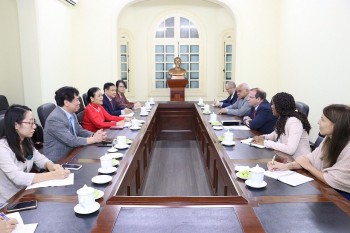 | Vietnam - Meaningful Place to Host World Peace Council: President of ICAP On the occasion attending the 22nd Congress of the World Peace Council in Vietnam, Fernando Gonzalez Llort - a Member of the Cuban National Assembly, ... |
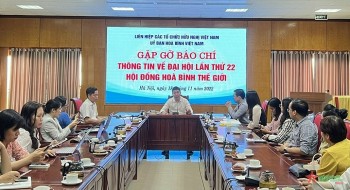 | World Peace Council Opens 22nd Assembly in Hanoi The 22nd Assembly of the World Peace Council (WPC) officially opened on November 21 in Hanoi. |
Recommended
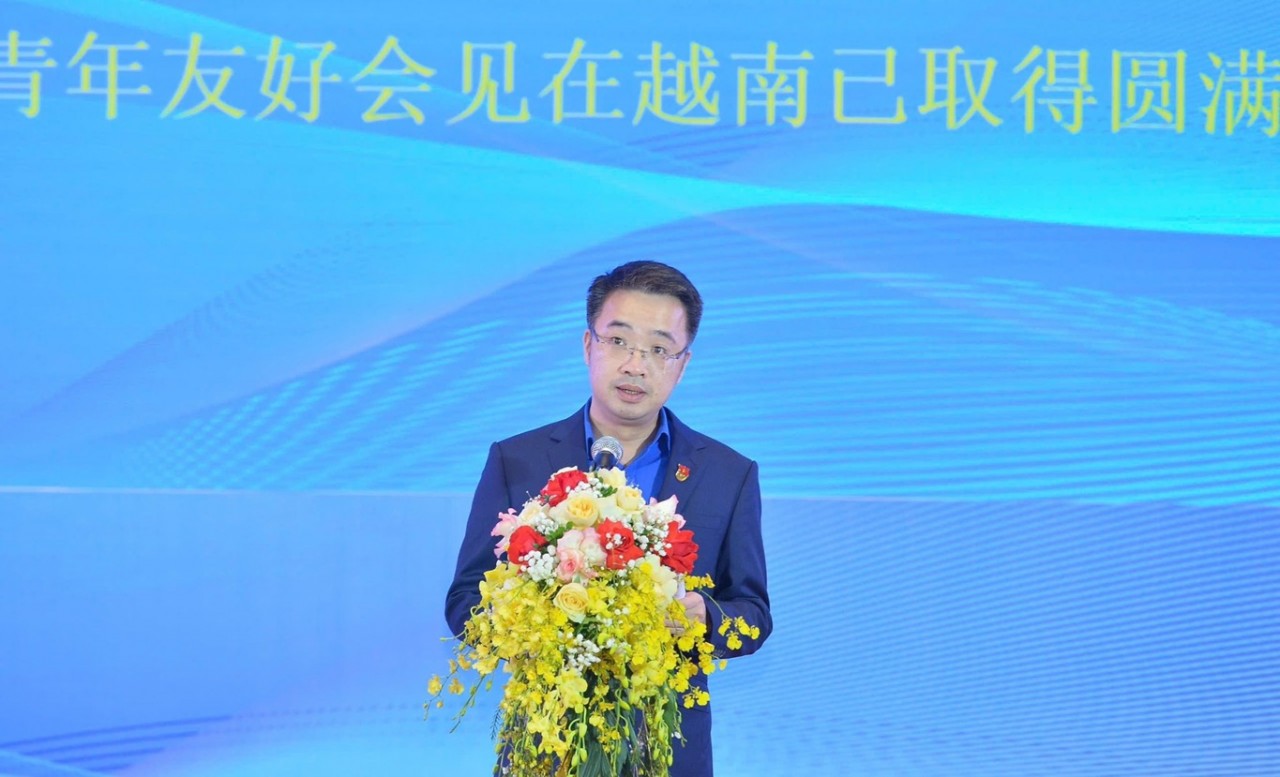 Focus
Focus
Vietnamese, Chinese Youth Extend the Bridge of riendship
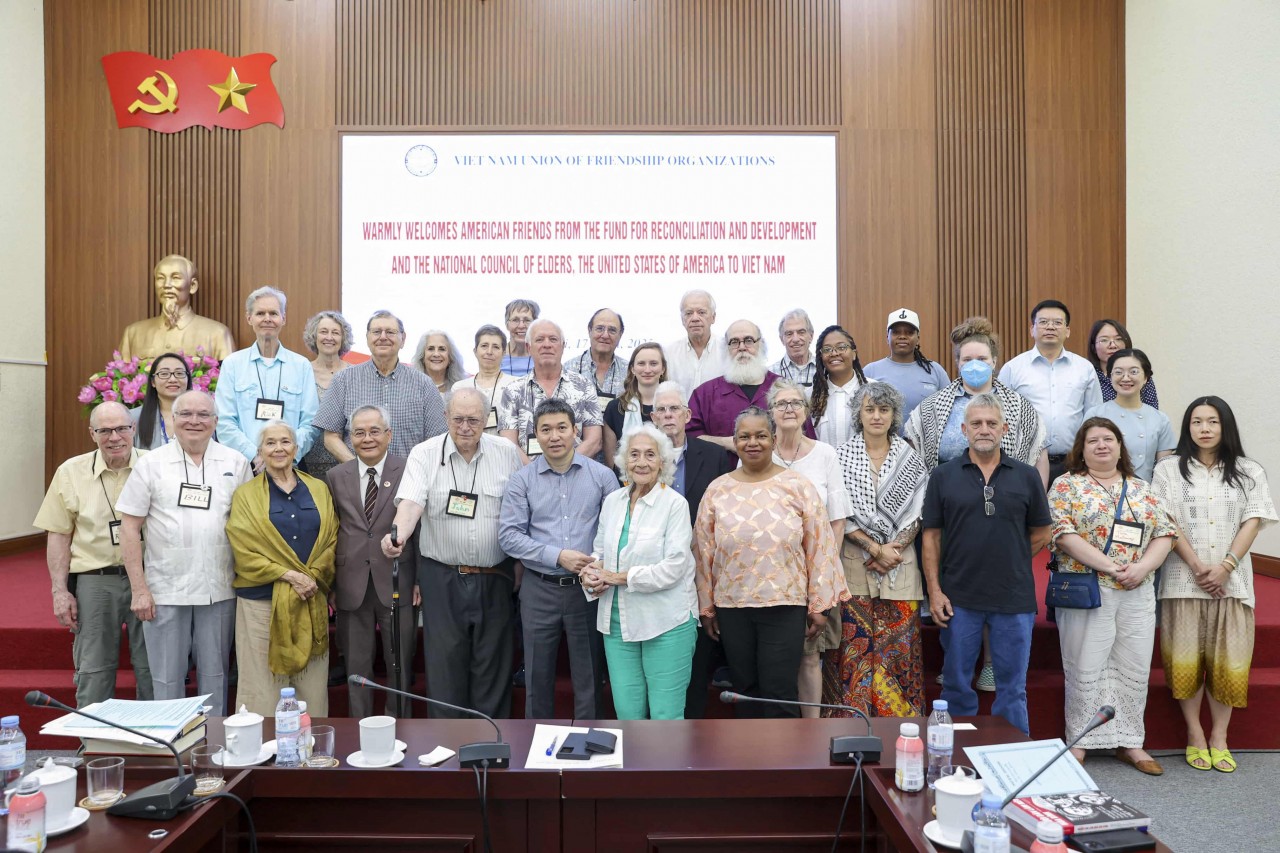 Friendship
Friendship
Spirit of Peace and Cooperation: Precious Asset of Vietnamese and US Peoples
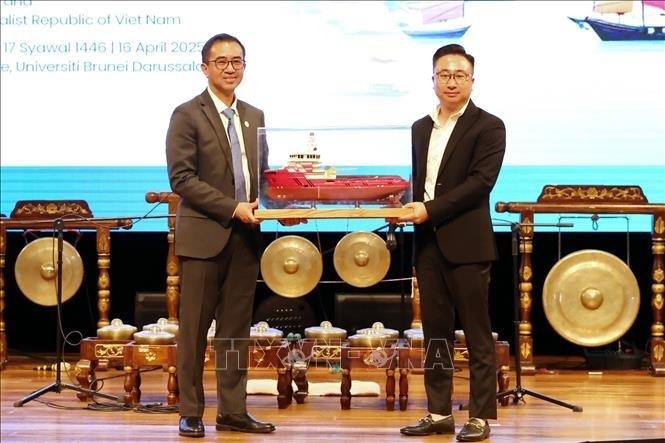 Friendship
Friendship
Promote Cultural and Educational Exchanges Between Vietnam and Brunei
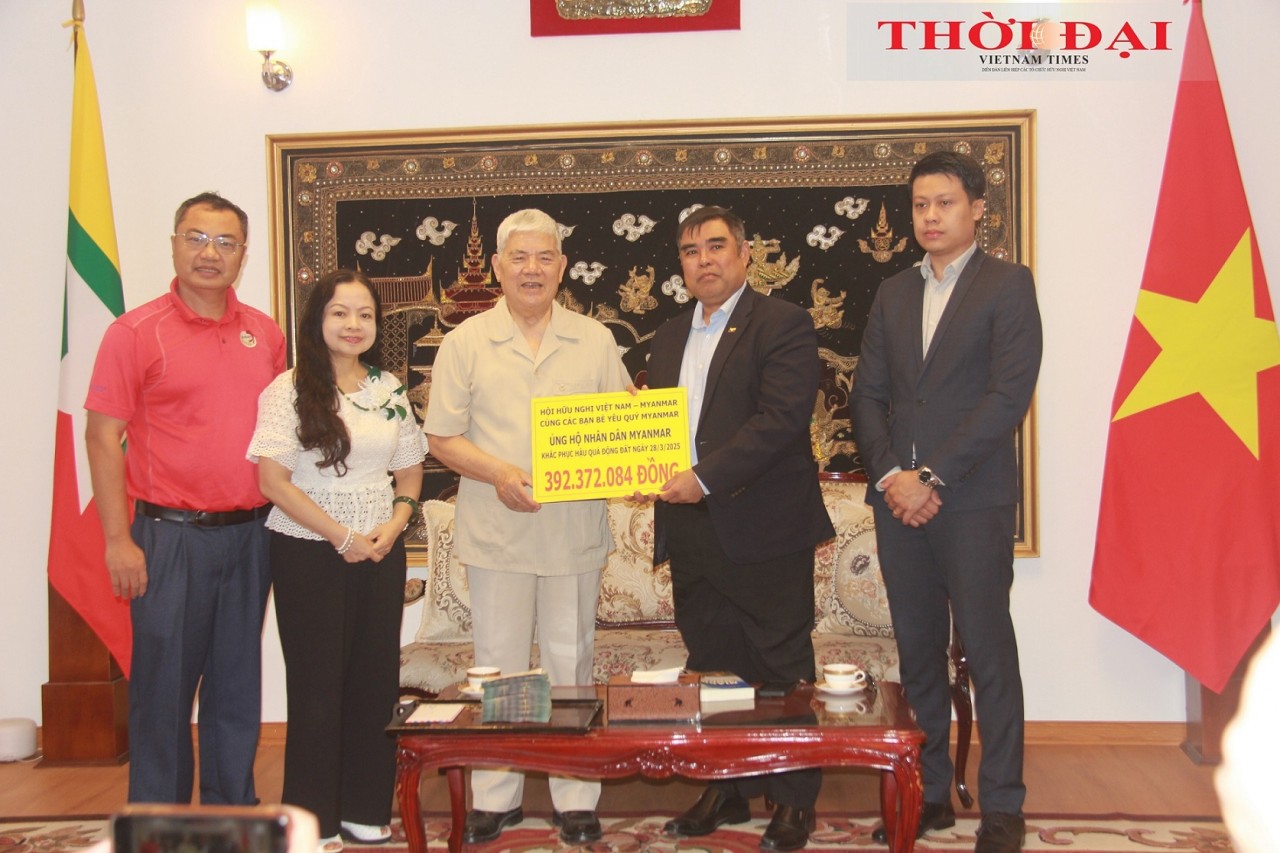 Friendship
Friendship
Nearly VND 400 million Donated to Support Myanmar Deal with Earthquake Consequences
 Friendship
Friendship
Vietnam, France to Boost Local-level Cooperation
 Friendship
Friendship
Vietnam - Cuba Friendship Exchange Marks 64th Anniversary of Giron Victory
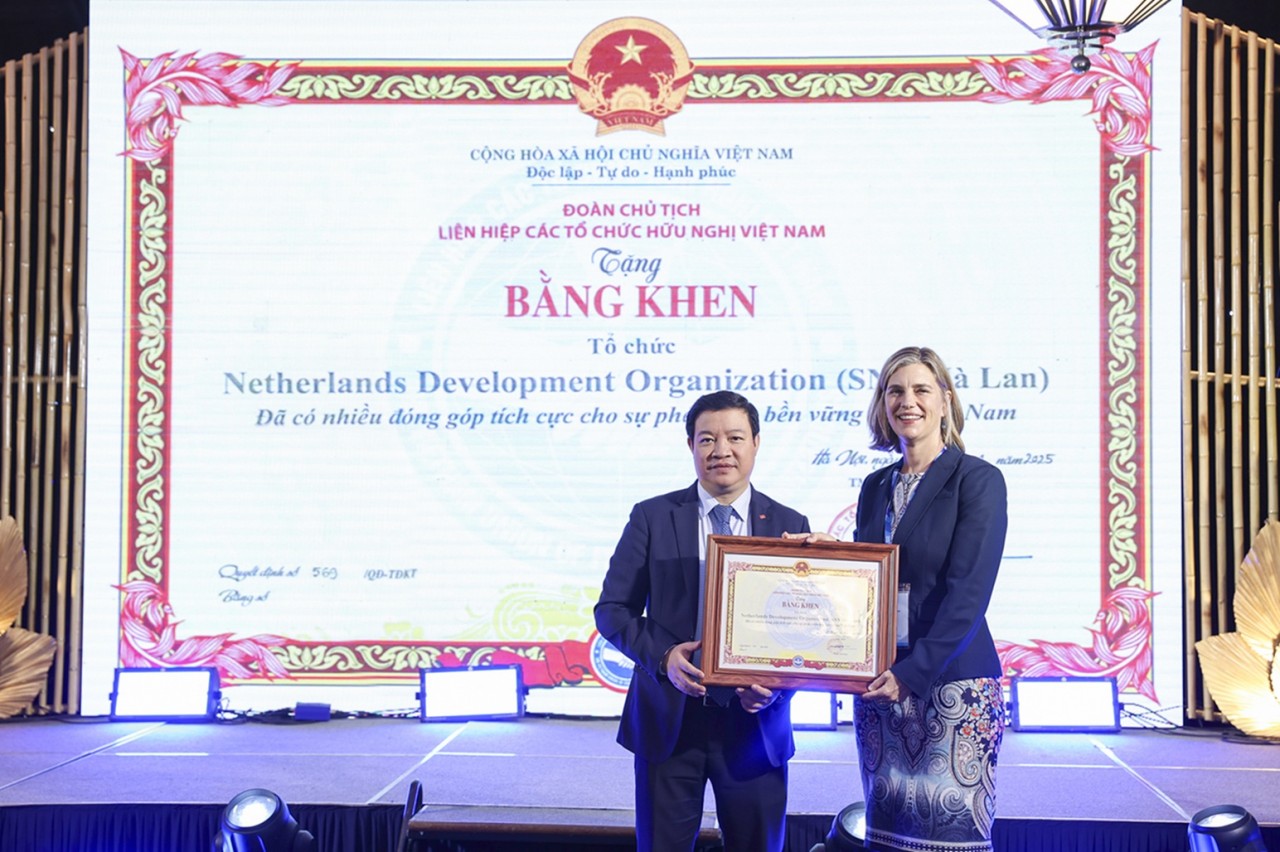 Focus
Focus
SNV: Ambassador of Vietnam - Netherlands People-to-people Relations
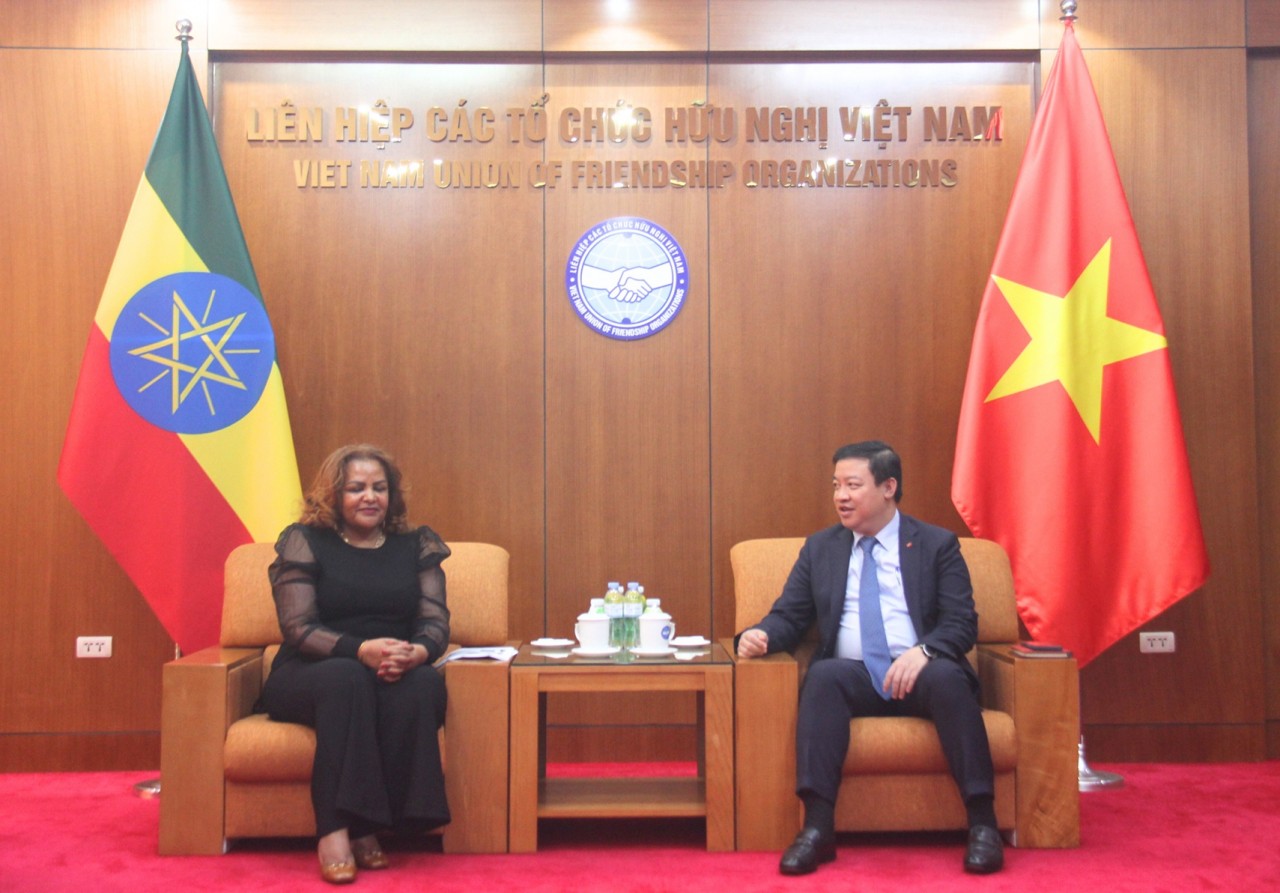 Friendship
Friendship

